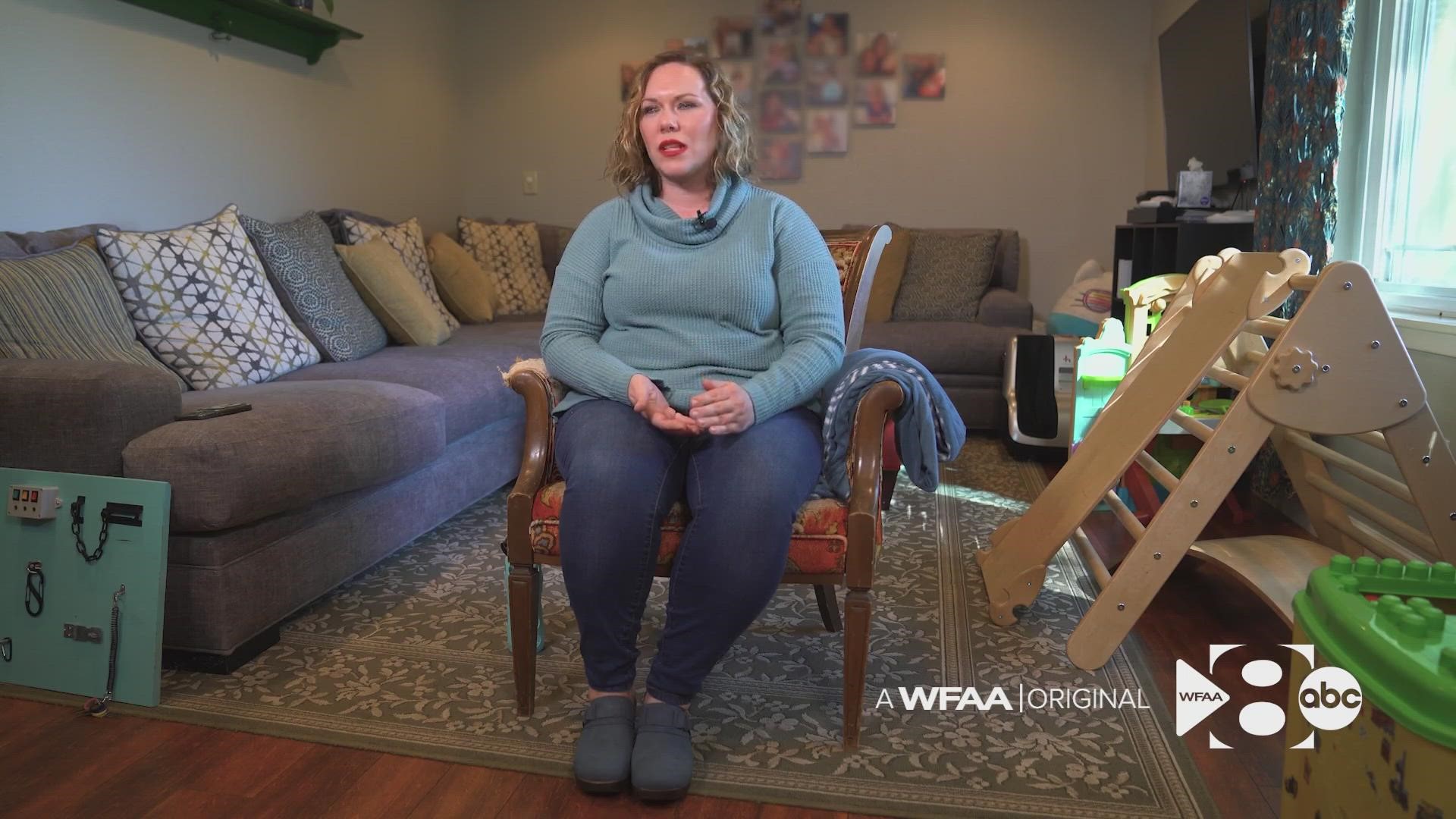DENTON, Texas — Caroline Antoun’s two greatest loves came only after suffering one of life’s greatest losses.
Her twins Theodore and Talia were born following multiple miscarriages.
Struggles with fertility can take a toll on any relationship and it is one of the reasons Antoun’s marriage crumbled once the babies were born.
Her divorce went to trial in a Denton County court June 29, 2022.
Five days earlier -- June 24, 2022 -- the Supreme Court had struck down Roe v. Wade.
What could the demise of the almost 50-year-old ruling that had protected a women’s access to abortion care have to do with Antoun’s divorce?
Everything, she says.
Talia and Theodore were conceived through in vitro fertilization, or IVF.
IVF means eggs are fertilized by sperm in a lab first and then implanted in a uterus.
Antoun chose to have two embryos implanted, resulting in Theodore and Talia’s births.
Three other embryos were frozen in case Antoun and her then-husband decided to try for more kids in the future.
Most clinics require a contract before IVF treatment can begin.
A contract spells out what will happen to frozen embryos in the case of a divorce or if the mother or father dies.
The contract Caroline signed gave the embryos to her ex-husband.
She says, looking back, she did not understand the gravity of the document.
“I’d had four miscarriages and was just in a really desperate place,” Antoun said through tears.
Because the divorce went to court so soon after the Supreme Court ruled on Dobbs v. Jackson Women’s Whole Health, Antoun expected that decision to impact the fate of her frozen embryos.
“We said, the laws are going to change. So, let’s be mindful of that,” Antoun says of the argument she and her attorneys made to the judge.
But the judge gave her ex-husband the embryos – following the contract and following Texas law, which considers embryos property.
Antoun is now appealing the judge’s decision, claiming because of the way Texas’s ban on abortion reads, the frozen embryos should be treated as people, not property.
“It really was clear with the Dobbs decision and with Texas being a trigger law state that very clearly defined life as beginning at fertilization,” Antoun said. “Frozen embryos are a fertilized egg.”
Seema Mohapatra holds the MD Anderson Foundation Endowed Professorship in Health Law at the SMU Dedman School of Law.
She is one of the nation’s leading experts in IVF law.
“Frozen embryos are considered property in Texas, just like any other kind of personal property, like your car,” said Mohapatra.
When asked if the overturning of Roe v. Wade and the trigger law banning abortions in Texas impacted the way frozen embryos are viewed, she gave a one-word answer.
“No,” she said.
The Texas law banning abortions does define an unborn child as “…from fertilization until birth, including the entire embryonic stages”
But Mohapatra says that definition applies to embryos in a womb not frozen embryos in a lab.
Antoun said that’s contradictory.
“If we say we value life and the whole idea of overturning Roe v. Wade and the trigger laws said we’re trying to protect life, but we’re still treating life over here as if its property that can be sold and bartered and done away with, that doesn’t match up at all,” Antoun said.
In past legislative sessions, Texas lawmakers have filed bills to extend personhood to frozen embryos.
Those efforts failed.
Similar bills have yet to be filed during this session in Texas, but Mohapatra won’t be surprised if one is.
“I think that is probably the next step,” she said.
But it would come with risks, Mohapatra said, because efforts to treat embryos as people could expose IVF doctors to prosecution.
They routinely discard embryos that aren’t viable.
“So we’ve seen in Louisiana and Mississippi – two states where personhood provisions were proposed -- one of the reasons they failed was these doctors said we’re going to leave your area and no one is going to have access to this care,” she said.
Nothing can happen to Antoun's frozen embryos while she is appealing.
Her divorce is final.
But life as a mother is far from settled.
“How on earth do we take a woman’s rights away from her children without due cause?” Antoun asked. “That seems unimaginable to me, it’s very un-Texan to me.”

